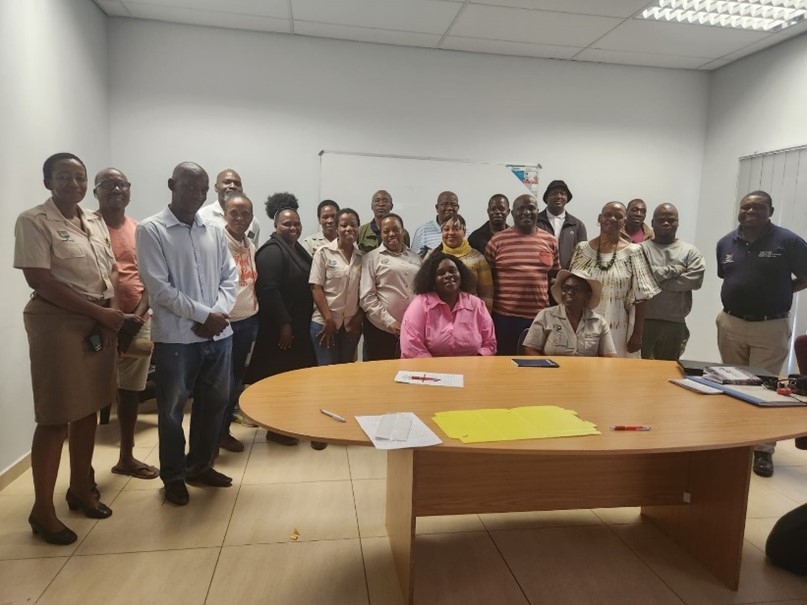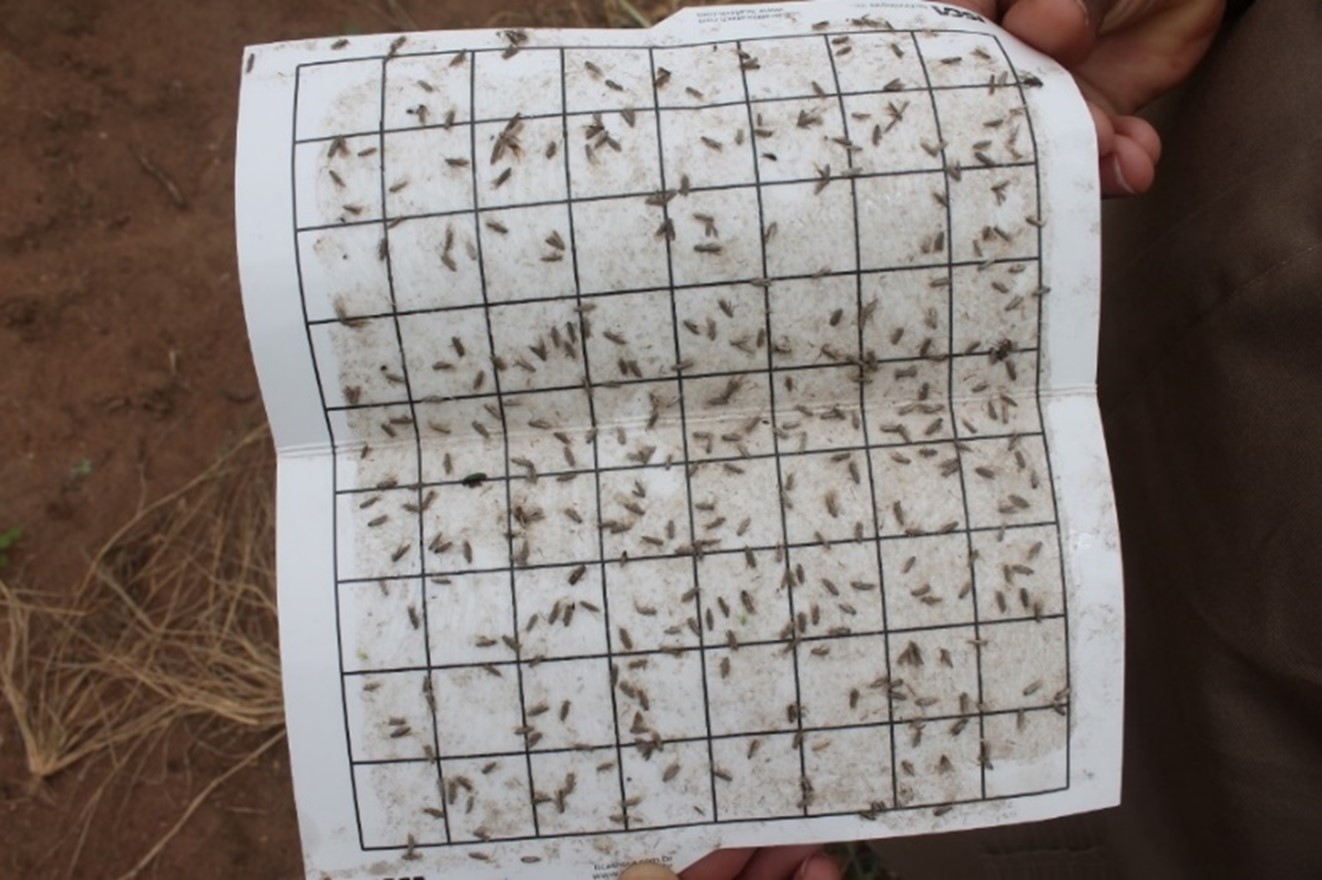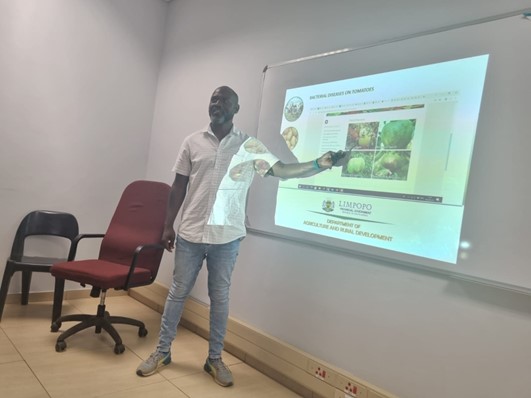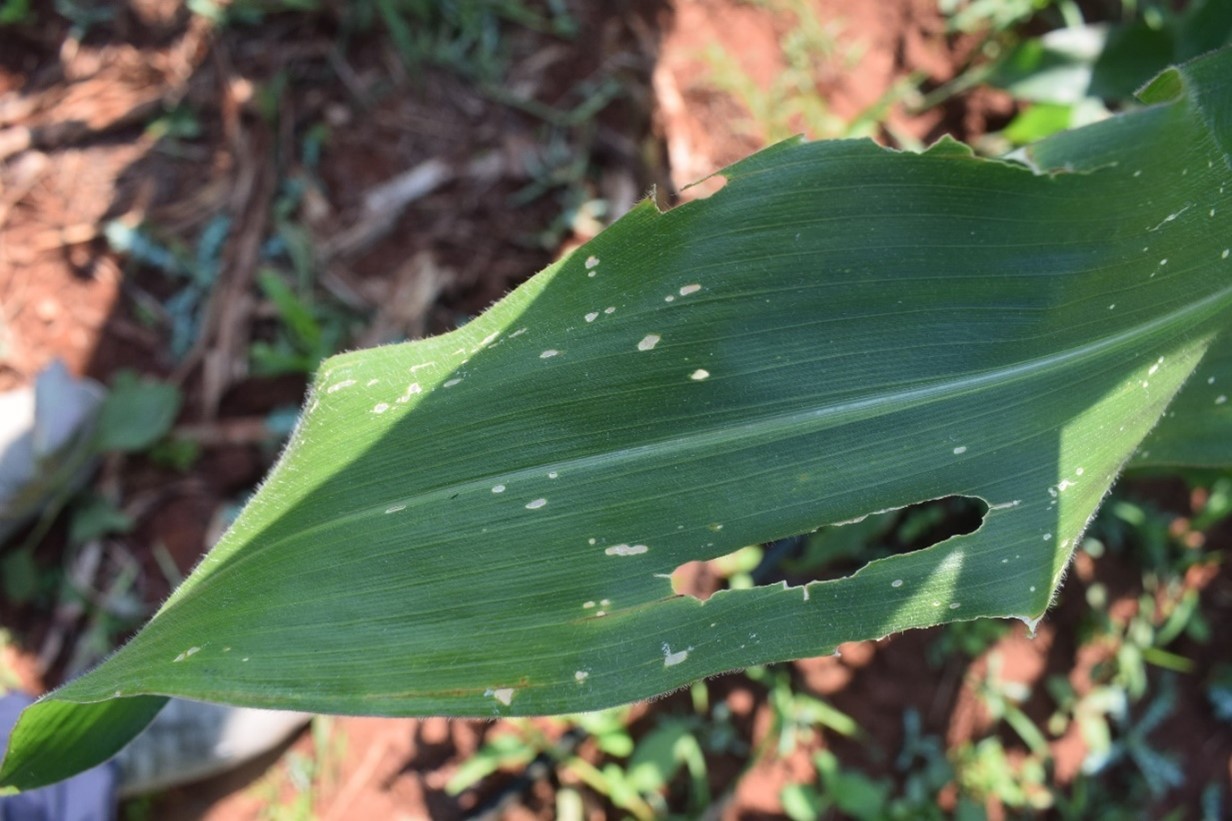By Floyed Sekgobela and Matsobane Manaka

Farmers’ days are some of the platforms to capacitate farmers to control pests.
Farmers have undertaken a training session on proper pest management practices. This was informed by the situational analysis, which was conducted by officials working in the area. It was established that the local farmers are making ends meet in dealing with persistence of pests and diseases which have economic impact in their produce.
The existence of pests in certain areas of the province have dire consequences that affect the livelihood of the farming community. Pests are insects that cause destruction in the horticultural operations affecting the plant health and quality of crop (reducing yield of host crops) resulting in the negative effect on the trade (marketability) of these commodities.
In an effort to promote and practice effective pest management practices which are both cost effective and environmental friendly, the Limpopo Department of Agriculture and Rural Development (LDARD) held the training on Pest & Disease Management. The training was conducted at Sefene Office, Subzone of Machaka-Ramokgopa, Capricorn East in Capricorn District on 21 September 2023.

Placing of traps is necessary to determine the type of pests to be controlled.
Godwin Khorommbi who facilitated the training, unpacked the various forms of exotic pests and their manifestation. They range from Oriental Fruit Fly-Bactrocera dorsalis, Tomato Leaf Miner-Tuta absoluta, Banana Bunchy Top Virus (BBTV), Fall Army Worm (FAW)- Spodoptera frugiperda, and Polyphagous Shot Hole Borer (PSHB) – Euwallacea fornicates, which in their last publication with Dr Khathu Tshikolomo said have entered South Africa for the first time over the past 10 years (2010 to 2020).
He made mention that three of these pests except the BBTV and PSHB seem to have established themselves well within the Limpopo affecting major commodity crops such as citrus, mango, banana, tomato, peppers (Oriental Fruit Fly), and other plants in the Solanaceae family (Tomato Leaf Miner), maize and sorghum (FAW).

According to Khorommbi, actions are in place for best possible Integrated Pest Management (IPM) Practices to keep these destructive pests away as follows:
- Capacity building: training of frontline officers by LDARD in partnership with Department of Agriculture, Land Reform and Rural Development (DALRRD), Agricultural Research Council (ARC) and other relevant stakeholders across the province for identification, diagnosis, and control of the destructive pests.
- Monitoring and surveillance: pest monitoring is intended to actively track the presence, population, and movement of a pest within a specified geographic area. This is typically conducted by trained technical personnel at sites throughout the province. The pheromone traps placed in the province are shared by various stakeholders, mainly the LDARD, DALRRD, Crop Watch, the ARC, Seed Companies, and some farmers. Farmers assisted by relevant officers are placed on alert to conduct scouting for these pests and report possible detection and damage so that further actions are taken to manage the pest.
- Awareness campaigns: Districts are and continue to be guided and supported to provide information on the presence, reporting and management of these pests through farmers’ days, information days and focused study groups.
- Management with pesticides: There are several insecticides registered for the management of these pests, but care must always be taken when using them. They must be used as part of IPM system that involves other methods such as sanitation and cultivar selection. Information of which insecticides are registered can be obtained from any local agricultural office.

Signs that Fall Army Worm has mined this maize leaf.


